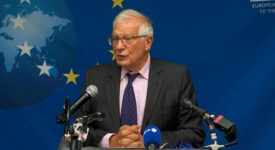The European Union and the Republic of Tajikistan held their fourth Cooperation Council meeting on 20 October 2014. During the meeting, the European Commission announced it would increase development aid for the country by €251 million for the period between 2014 and 2020. The new batch will focus on boosting growth and social stability including health, education, and rural development. The last three areas are the main focus of the EU’s development engagement in Tajikistan, with €110 million devoted to rural development, €62.2 million to health, and €75 million to education and vocational training.
EU Commissioner for Development, Andris Piebalgs, commented that development support was still an important thing for much of the Tajikistan population. He added that the EU was committed to achieving the greatest possible outcomes of every euro spent, which is why EU leadership defined the country’s development priorities in close discussions with the Tajikistani government. “Ultimately, we hope to create the conditions for the country to become self-reliant,” Commissioner Piebalgs concluded. The Cooperation Council reaffirmed the readiness of both parties to strengthen ties in several cooperation areas and took stock of the progress made since the previous Cooperation Council that took place in October 2013.
Moreover, both parties reiterated the salience of comprehensive implementation of the EU strategic policy for Central Asia both on regional and national basis. The EU moreover embraced Tajikistan’s active involvement in its regional projects and initiatives. In addition to development objectives, the Cooperation Council also discussed important areas of reform, such as politics and administration, but also the rule of law, human rights, trade, and economic relations. The EU also emphasized the importance of the necessity for ensuring inclusive and transparent elections and called for long term political stability in the country.







